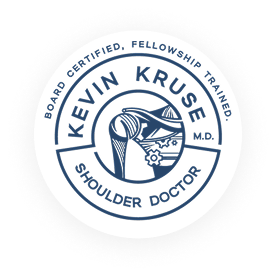Advantages of Using Computer-Assisted Technology & Artificial Intelligence in Shoulder Surgery
Advances in computer-assisted technology are changing surgery as we know it. This summer Stryker, one of the world’s leading medical technology companies, introduced the Tornier shoulder arthroplasty portfolio and launched its first new Tornier product, the Perform™ Humeral Stem.
From the simplest to the most complex shoulder arthroscopy cases, these advances in technology and artificial intelligence provide surgeons and patients with many advantages before, during, and after surgery.
Before Surgery:
Pre-surgical Planning: Planning software allows surgeons to pre-plan their case and surgical procedure. For instance, in the Stryker program, the Blueprint™ planning software can provide real-time, precise virtual surgery before a surgeon ever walks into an operating room.
Customized implants: Surgeons can now customize shoulder replacements to closely match the unique anatomy of each patient and optimize the fit of the implant.
During Surgery:
Added accuracy: Computer-assisted technology gives added accuracy to preparing the bone and positioning the implant. This technology provides information that aids surgeons in securing precise alignment and accurate positioning of the implant improving accuracy and outcomes.
Real-time feedback: Special navigation cameras and smart instruments work together to provide real-time 3-D images of the shoulder joint to integrate with surgical data; giving surgeons copious amounts of information to inform their surgical procedure.
Reduced operative time: Through this technology and the pre-surgical planning that is available, operative time is significantly reduced, which is a direct benefit to the patient. Less time in surgery directly reduces the risk of infection.
After Surgery:
Immediate benefits: Immediately following surgery, these advantages include a shorter stay in the hospital and minimal scarring with smaller incisions.
Long term benefits: In the long term, longevity of the implant increases with improved alignment and precise positioning.
Computer assisted surgery and artificial intelligence is changing surgery, as we know it. One thing that remains the same, the surgery is still performed entirely by your surgeon. Technology is simply a tool to be used for greater accuracy.
From the simplest to the most complex shoulder arthroscopy cases, these advances in technology and artificial intelligence provide surgeons and patients with many advantages before, during, and after surgery.
Dr. Kevin Kruse is a board-certified, fellowship-trained, orthopedic surgeon specializing in Shoulder injuries and arthroscopic Shoulder surgery in North Texas.

